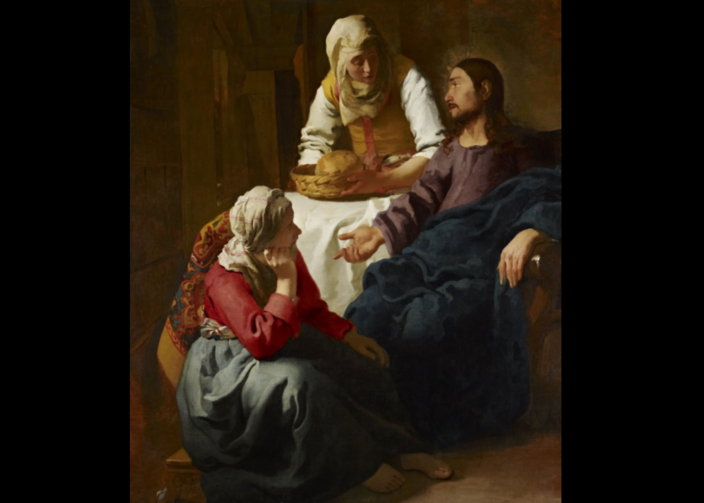A Reflection for the Memorial of Saints Martha, Mary, and Lazarus
She said to him, "Yes, Lord.
I have come to believe that you are the Christ, the Son of God,
the one who is coming into the world."
Martha, Mary and Lazarus are some of my favorite people in the Gospels. As someone who’s always kept a tight circle of friends with very distinct personalities, I love that Jesus has a similar circle, distinct from the apostles and disciples who travel with him, whom he goes out of his way to visit and who speak frankly with him, as if he were one of their siblings. I like to imagine what their lives were like: Were any of them married? Were there kids running around? Did Lazarus have a disability, as some have posited, explaining why Mary and Martha are portrayed as heads of the household? What was it like for them to return to life with Lazarus after he was raised? How was this family, the beneficiaries of what James Martin, SJ, calls “Jesus’ greatest miracle”, seen by the wider community?
As a bit of a workaholic and smartmouth myself, I have to admit I feel a strong personal connection to Martha. I’ve always been moved by today’s Gospel, in which she runs out to meet Jesus and immediately blames him for Lazarus’ death. (“Lord, if you had been here, my brother would not have died!”) In the next breath, though, she becomes one of the first people to recognize Jesus as the Messiah, long before Peter does.
It’s Martha’s profession of faith that resonates most with me, because she acknowledges that her faith in Jesus has been a journey, maybe even a struggle: “I have come to believe,” she says. Not “I believe,” but “I have come to believe.” Faith can seem so simple and straightforward in the Gospels: You believe, you’re saved. Martha’s journey looks more like most people’s real-life experience: She half-listens to Jesus preaching while she does the dishes and interrupts him when she’s frustrated Mary isn’t helping her. She comes to believe over time that this friend of hers really is the Messiah. When he comes too late to save her brother, she yells at him in the street. And at the same time she tells him she believes him when he says he can raise Lazarus from the dead.
Martha shows us that deep faith can coexist with anger towards God, distraction in listening to God, frustration with God, and not be lessened by any of those things. And she gives me hope that even those of us with complicated journeys of faith can live alongside miracles, like the risen Lazarus, in our everyday lives.








